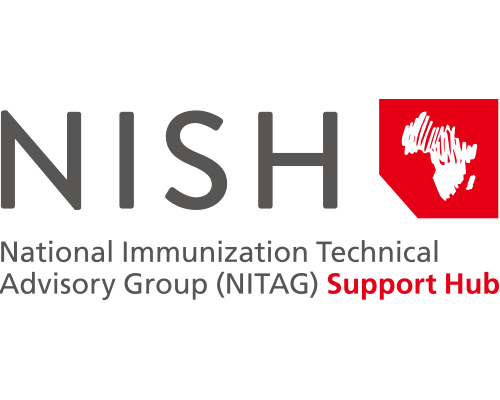The NISH Vaccinology Training for National Immunization Technical Advisory Groups (NITAGs) aims to strengthen NITAGs competencies in vaccinology and immunisation decision-making. The course is designed with the overarching principle that robust knowledge of vaccinology is essential in developing and implementing new vaccines and immunisation policies, practices and programmes. Hence, the course occurs at the intersection of vaccinology and evidence-informed decision-making (EIDM).
The course intends to build solid competencies in vaccinology through understanding principles of epidemiology, molecular epidemiology and immunology; build decision-making skills by utilising appraisal methods such as economic evaluation, mathematical modelling, design thinking and health systems guidance; and impart up-to-date information on trends and developments in vaccinology. The course also provides a forum for NITAGs operating in African countries to meet and exchange experiences.
The course offers tailored, in-depth training to NITAGs as working units rather than individual members. The intake per course is up to six NITAGs (with up to seven members per group). Participants are required to attend in person.
The course is held once a year by invitation. Additional courses can be arranged on request.
The NISH Vaccinology Training for NITAGs is hosted in collaboration with the World Health Organisation (WHO) at the University of Cape Town, South Africa. Through the generous support of the Wellcome, the course is currently offered at no cost.
Who should attend: NITAG Chairs, Co-Chairs, core members and secretariat
Course objectives
The course aims to:
- Provide participants with essential and up-to-date knowledge on human vaccines
- Broaden the understanding of challenges and opportunities in vaccinology at regional, continental and global levels
- Provide a forum to share country-specific immunisation policymaking experiences
- Encourage dialogues about the successes, challenges, and opportunities to improve national immunisation programmes in Africa
- Provide a space to explore how to strengthen national immunisation programmes in Africa
- Identify areas for collaboration and technical capacity development
- Foster communication and networking among African vaccinologists
Course content
The course covers these key themes:
- Global and regional policy frameworks
- Ethical and regulatory frameworks
- Benefit-risk decision-making in vaccinology
- Vaccine confidence
- Adverse event following immunisation (AEFI)
- Vaccine communication and advocacy
- COVID-19 vaccine development
